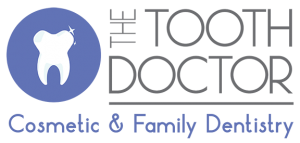Bruxism is the technical term for grinding and clenching that abrades teeth and may cause facial pain. People who grind and clench, subconsciously and habitually squeeze their teeth together and/or grind the teeth without realizing it. In addition to grinding teeth, “bruxers” may also bite their fingernails, pencils and chew the inside of their cheek. Some people mistakenly believe that their teeth must touch at all times and force the condition. About one in three people suffer from bruxism, which can easily be treated by a dentist.
People who have otherwise healthy teeth and gums can clench so often and so hard that over time their teeth become sensitive due to the excessive wear on their teeth. They also may start acquiring chronic headaches and/or experience jaw pain and sore muscles. Stress and certain personality traits are at the root cause of bruxism. Nervous tension has always affected humans and bruxism affects people with nervous tension. Anger, pain and frustration can trigger bruxing. People who are aggressive, competitive and hurried also may be at a greater risk for bruxism.
During regular dental visits, the dentist automatically checks for physical signs of bruxism. If the dentist or patient notices signs of bruxism, the condition may be observed over several visits to be sure of the problem before recommending and starting therapy. A commonly used therapy is for the dentist to make a plastic mouth appliance, such as a night guard that’s worn to absorb the force of biting. This appliance can prevent future damage to the teeth and helps change the patient’s destructive behavior.
